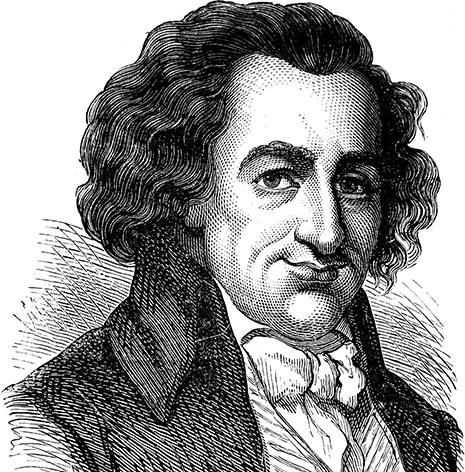Counterblasts
Verso | $22.95 each
“AS I write, highly civilised human beings are flying overhead, trying to kill me.” So begins one of the few political pamphlets produced during the twentieth century to achieve some sort of afterlife as literature. And you can sense why it has survived from this one intriguing sentence: who is this “I” who is willing to allow that his potential murderers are also civilised human beings?
The Lion and the Unicorn: Socialism and the English Genius was written in the autumn of 1940 during the Battle of Britain, in a fairly miserable two-room fourth-floor flat near Regent’s Park, and its endangered author was George Orwell. And those civilised murderers were, of course, the Luftwaffe bomber crews, most of whom Orwell assumes, for the sake of argument, to have been law-abiding Germans before the war, but who were now carpeting London with high explosives in the name of patriotism.
Orwell wrote this pamphlet explicitly to aid the British war effort. He wanted to remind the British Left that it was essential to be patriotic in the war against fascism – as patriotic as those men in their Heinkels and Junkers, trying to silence his typing forever – and he wanted the British Establishment to admit that his form of socialism was a necessary prerequisite for victory because the ordinary people of the nation needed assurance that their sacrifice would be rewarded.
Orwell famously stated that he wanted to “make political writing into an art.” He wrote out of partisanship, out of a sense of injustice; he wrote to expose a lie, or draw attention to a fact; but he also wrote because he wanted to create an aesthetic experience. As he explained in his essay “Why I Write”:
Anyone who cares to examine my work will see that even when it is downright propaganda it contains much that a full-time politician would consider irrelevant. I am not able, and do not want, completely to abandon the world view that I acquired in childhood. So long as I remain alive and well I shall continue to feel strongly about prose style, to love the surface of the earth, and to take a pleasure in solid objects and scraps of useless information.
As The Lion and the Unicorn makes plain, Orwell was a patriot and a socialist – but he was also a humanist. And he believed in all three values equally. If he hadn’t, I doubt he would be remembered so fondly today by so many.
Not surprisingly Orwell loved political pamphlets. He collected them; and, as we’ve seen, he wrote them. He even wrote the introduction to a collection of them. Published in 1948, British Pamphleteers: From the Sixteenth Century to the French Revolution brought together several classics of the genre: Jonathan Swift’s A Modest Proposal, which attacked the British ruling class and its complacency about poverty in Ireland; Thomas Paine’s case for American independence, Common Sense; and the more obscure but no less potent work of the Protestant agrarian communist, and so-called True Leveller, Gerrard Winstanley, who called for the abolition of property at the time of the English Civil War.
Pamphlets have always flourished in times of great political crisis. Whenever the world is convulsed by religious persecution, civil war, world war or loyalty oaths, passionate people will be off scribbling pamphlets. But according to Orwell, “To ask ‘What is a pamphlet?’ is rather like asking ‘What is a dog?’” We all know a dog when we see one, he went on, “but it is not easy to give a clear verbal definition; nor even to distinguish at sight between a dog and some kindred creature such as a wolf or a jackal.”
A pamphlet, Orwell tells us, can be satirical, scurrilous or abusive; it can be highbrow commentary, or low propaganda; but it must be topical, polemical and short. It “may be written either ‘for’ or ‘against’ somebody or something, but in essence it is always a protest.” Whether dog, jackal or wolf, it should have fangs. And for a piece of political writing to really have bite, something important must be at stake.
But as Orwell also reminds us, most pamphlets are “rubbish.” Only a very few will ever be considered significant enough to be collected into a book. A product of the same emotions that generate Letters to the Editor, pamphlets are written to silence the bee in one’s bonnet. It is a very human ambition, but not always well executed. To see what I mean, spend a little time on the net. In a digital world, where everyone is a potential publisher, everyone is also a potential pamphleteer. The bloggers of the twenty-first century generate a lot of words, but their hit-to-miss ratio is definitely no better than when Orwell was writing seventy years ago.
THE one aspect of pamphleteering that Orwell fails to mention is the strange romance of the form; the unlikely, but nevertheless attractive, notion that a single voice can rise up and change the world. Not surprisingly then, even hard-nosed publishers occasionally fall under its spell.
The left-wing publishing house Verso has recently launched Counterblasts, a series that “aims to revive a tradition inaugurated by Puritan and Leveller pamphleteers in the seventeenth century.” Verso’s first three volleys are aimed at blowing a hole in the reputations of a trio of writers who greatly offend the Far Left: the pro–Iraq war liberal Michael Ignatieff; the notoriously glib but influential journalist Thomas Friedman of the New York Times; and the supremely annoying French philosopher Bernard-Henri Lévy. Unfortunately, for the series, Verso’s first blast – against Ignatieff – is more of a wet bunger than an Exocet missile.
In many respects, the would-be philosopher-king of Canada is an easy target. He once appeared, for example, on the cover of GQ magazine in a pink suit. But is he worth a small book, marketed as a pamphlet in the tradition of Gerrard Winstanley? In a literary career spanning three decades Ignatieff travelled the globe writing from some of the world’s hottest hot spots for magazines like the New Yorker. He also found the time to teach at Cambridge, write a number of award-winning books, present TV documentaries and write feature film scripts. He was charming, good-looking and very successful. He looked for all the world like the epitome of the left-leaning public intellectual.
But there was a major blemish. He staked a large part of his reputation on backing President Bush’s war in Iraq. In the late 1990s he had argued forcefully in favour of NATO’s limited but effective intervention in Kosovo. After September 11, Ignatieff convinced himself that Bush’s knee-jerk, a-strategic war against Saddam Hussein could also be justified on humanitarian grounds, even though the justifications put forward by the Bush administration itself were so obviously dubious. At a key point in history, Ignatieff took a pretty dumb position for someone so well informed about the world and how it operates.
And then in 2004, when he was teaching human rights at Harvard, Ignatieff was approached by several powerbrokers from Canada’s Liberal Party and asked if he’d like to return to the country of his birth after a thirty-year absence and try to become prime minister. It was a bit like Mark Arbib asking Clive James if he’d care to come home and lead the Labor Party. In a fit of what now looks like hubris, Ignatieff said yes, and after a few years recreating himself as a politician he actually did become leader of the party.
But then in 2011 he led the Liberals – who have dominated Canadian politics for the last century – into their worst election defeat ever. The Conservatives under Stephen Harper stormed home, the social-democratic NDP came in second and the Liberals fell with a thud into third place for the first time in their history. Ignatieff even lost his own seat. As far as career moves go, it’s almost up there with Silvio Berlusconi’s recently released album of love songs.
The anti-war activist and journalist Derrick O’Keefe watched all this with a mixture of contempt and despair, and wondered why one of “Bush’s useful idiots” (as the late Tony Judt designated him) was getting such an easy ride. He sat down to read just about everything written by his prolific enemy and discovered that Ignatieff has a fatal flaw: he “is a man simply incapable of turning off the flow of bullshit.” Oh, and also, this ambitious intellectual, who chose to chase fame in London and the United States, clearly didn’t understand ice hockey.
O’Keefe’s snarky asides about whether Ignatieff is a real Canadian are the weakest part of an already weak project. Such is his distaste for Ignatieff’s politics, O’Keefe has fallen into the habits of a right-wing shock jock. Has the politically right-on O’Keefe stopped to consider how foolish it is to harp on about Ignatieff’s long absence from his homeland, and his consequent lack of knowledge about Canada’s national sport, as somehow disqualifying him for national office? I’m sure O’Keefe would be rightly outraged if potential migrants to Canada had to pass a test on Wayne Gretsky’s career stats in order to gain their citizenship.
So does O’Keefe’s “pamphlet” amount to much? The main problem with the work, and Verso’s decision to publish it, is pretty simple: it’s the time and place of its conception, Canada in the present day. When Swift was writing his Modest Proposal children were falling down dead in the streets of Dublin. A few days before Paine published Common Sense in January 1776 the Virginia town of Norfolk was reduced to a smouldering heap by British warships. And when Winstanley was calling for an end to private property in the mid seventeenth century, he and his followers were getting beaten up regularly by men in the pay of powerful landlords.
The Verso pamphlets look like they’re fighting an old-fashioned culture war. The great pamphlets were written fighting real wars.
And how much real value is there in what is effectively a long article on the errors, elisions and contradictions of the long writing career of an author who was forced to admit that his support for Bush’s Iraq adventure was a mistake, and whose shift into politics ended in embarrassing defeat? Aren’t Michael Ignatieff’s self-inflicted wounds more devastating than O’Keefe’s leaden reiteration of them?
In the early twenty-first century, wouldn’t it be a bit braver for Verso to commission a pamphlet from a member of Russia’s small – and shrinking – anti-authoritarian opposition about why Putin is a menace to his own people, or from an Iranian dissident, the pages smuggled out of Tehran in the lining of a travel bag, or from a Syrian democrat writing an open letter to President Assad?
“As I write, some of my fellow citizens are rumbling down the street outside my window in a large tank…” •




